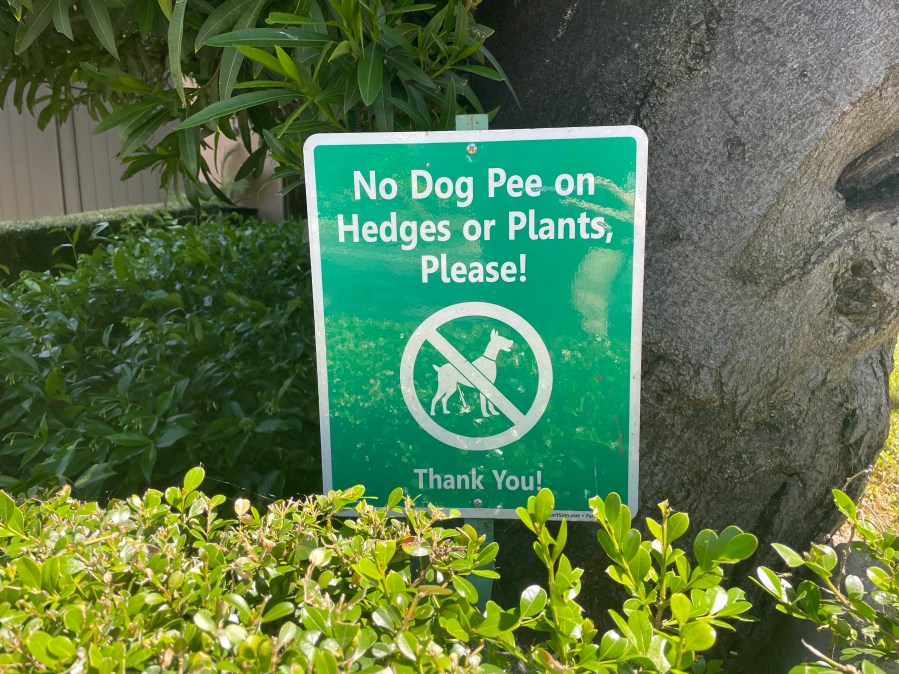Dog owners know the signs well. They usually feature a cartoon illustration of a dog in a circle, crossed out. The accompanying text can be direct (“no dog pee”) or passive aggressive (“be respectful”).
In any case, the message to dog walkers is clear: Do not let your dog do its business here. And that can leave dog owners – especially those without their own private plots of grass to let their dogs pee all over – in a tough spot. One Redditor said despite attempts to keep their dog peeing on the public sidewalk, “he just prefers grass.”

Everyone seems to agree that when it comes to poop, it’s a no brainer: You pick up after your dog. In fact, that’s the law in many municipalities with canine waste laws, nicknamed “pooper scooper laws.” Violators who don’t pick up their dogs’ poop can be fined.
But the laws governing dog pee are less clear. You can’t exactly clean it up once it soaks into your neighbor’s well manicured lawn, but it’s also not always OK to let your dog do its business there.
Technically, allowing your dog to cross onto someone’s private property (and pee there) counts as trespassing, explained Matthew Liebman, associate professor at the University of San Francisco School of Law. In practice, however, there are few – if any – legal consequences.
“The likelihood of actually being held criminally or civilly liable is very low, almost zero,” Liebman said.
The chief concern for most people who put out these types of signs is damage to their grass, flowers or other plants. Dog urine’s high nitrogen concentration can burn grass.
If a homeowner can prove their grass was damaged, or their flowers were dug up, they could sue for civil trespassing, Liebman said. But even then, they would normally only be entitled to “nominal damages,” which is just $1 or a very small amount that acknowledge the plaintiff’s rights were violated.
“The expense of hiring a lawyer to pursue a case with only nominal damages is just not worth it,” he said.
Whether a sign was posted or not doesn’t make a huge difference in their case either, he said. “It does put the dog walker on notice that the owner doesn’t want their dog in their yard, so it would help establish that the entry was not permitted, but it would not affect the damages available.”
When it comes to criminal trespassing, the case would have to be taken up by the district attorney – and prosecutors have much bigger fish than punishing someone for a bit of dog pee. If the damage caused was significant, Liebman acknowledged, that might change things.
But in most cases, the only retribution violators can (and do) get is a dirty look.
“At the end of the day, dog guardians should be considerate people who clean up the messes that their dogs make. And property owners should understand that dogs need to go for walks and that they will pee and poop on those walks,” Liebman concluded. “That’s all part of living in a multi-species world.”












